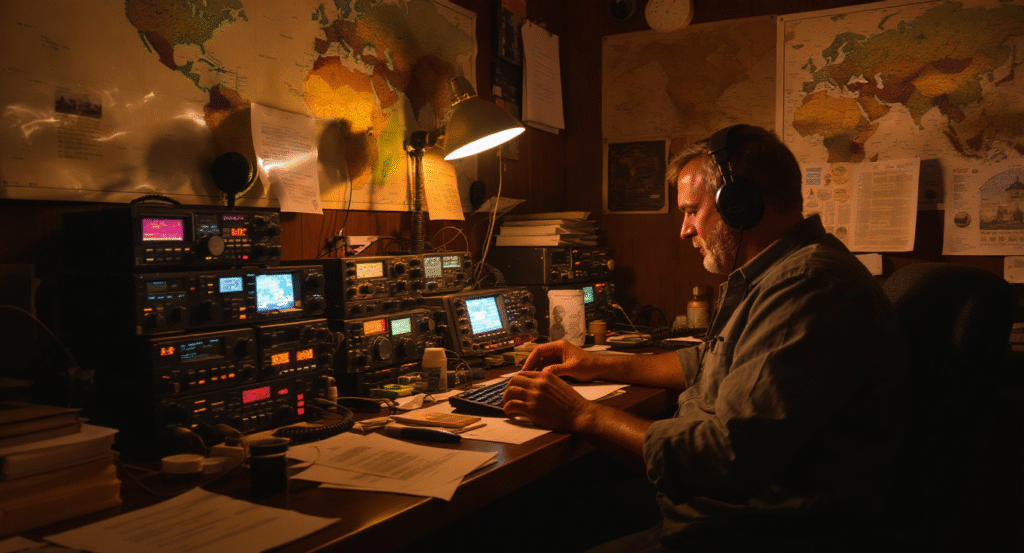How to Get Started in Ham Radio
Ham radio, or amateur radio, is a rewarding hobby that brings together people passionate about communication, technology, and public service. Whether you are interested in making friends around the world, building your technical skills, or supporting your local community during emergencies, getting started is easier than you might think.

What Does Getting Started Involve?
Starting your ham radio journey typically involves a few straightforward steps:
- Learning the Basics: Understanding radio fundamentals, regulations, and operating practices.
- Obtaining a License: Passing an exam to receive your government-issued amateur radio license.
- Getting Equipment: Selecting and setting up your first radio and antenna.
- Joining the Community: Connecting with local clubs, nets, and online communities for support and growth.
Step 1: Learn About Ham Radio
Begin by exploring what ham radio is about. Many resources—such as books, club meetings, and online videos—provide introductions to fundamental concepts:
- How radios and antennas work.
- Radio communication procedures.
- Legal and safety regulations.
Most newcomers find it helpful to join a local amateur radio club. These clubs often hold introductory classes, demonstrations, and testing sessions, and are a great way to meet mentors and new friends.
The National Short Wave Listeners Club (NSWLC) is affiliated with the IRTS offers free, live online courses to help you pass the HAREC licensing exam required by the Irish regulations set out by ComReg. HAREC classes are led by volunteers who are experienced radio operators.
Follow the three steps below to get on the air!
Step 2: Study for the Exam
To operate legally, you must earn an amateur radio license by passing a multiple-choice exam covering basic electronics, practical radio knowledge, and the rules governing amateur radio. Study resources include:
- Official licensing handbooks.
- Free online courses and YouTube tutorials.
- Practice exams available on national ham radio society websites.
- Study groups, both in-person and online.
Most countries have several license classes. Beginners usually take the entry-level exam, which is designed to be accessible, even if you have little or no technical background.
Step 3: Take the Exam
Arrange to take the licensing exam through:
- Local amateur radio clubs.
- Special examination sessions hosted by national amateur radio societies.
- Online testing options (offered in some countries).
Upon passing, you will be assigned a unique call sign and granted rights to operate on amateur bands appropriate for your license class.
Step 4: Get Your First Radio
With your license in hand, it’s time for your first radio:
- Handheld Radios: Affordable VHF/UHF handheld transceivers (HTs) are often recommended for beginners and are perfect for local communication.
- HF Rigs: For global communication, entry-level HF radios are available, though they require a bit more investment and setup.
- Antennas and Accessories: Simple antennas can be built or bought inexpensively.
Many clubs offer loaner equipment or “station nights” where you can operate before investing in your own setup.
Step 5: Make Your First Contacts
Start reaching out on-air! Join local repeaters, participate in club nets, or listen in on popular frequencies. Don’t be afraid to introduce yourself as a new operator—experienced hams are usually eager to welcome you and answer your questions.
Step 6: Keep Learning and Explore
Ham radio has endless opportunities for learning and exploration:
- Try digital modes, Morse code, satellites, or even bouncing signals off the moon.
- Participate in contests and special event stations.
- Volunteer for public service communications and emergency response.
- Build your own antennas, experiment with electronics, or connect radio to your computer.
Helpful Resources for Beginners
| Resource | Description |
|---|---|
| Local Radio Clubs | Offer in-person events, training, mentorship |
| National Amateur Radio Society | Official study materials, exam registration, regulations |
| Online Communities | Forums and chats for advice (Reddit, QRZ.com, Facebook groups) |
| Practice Exam Sites | Simulated exams to test your knowledge |
Final Thoughts
Anyone with curiosity and enthusiasm can become a licensed radio amateur. With minimal cost and straightforward exams, you can join a global community devoted to communication and technical discovery. Start today, and you’ll be on the air in no time, sharing the magic of radio with the world.